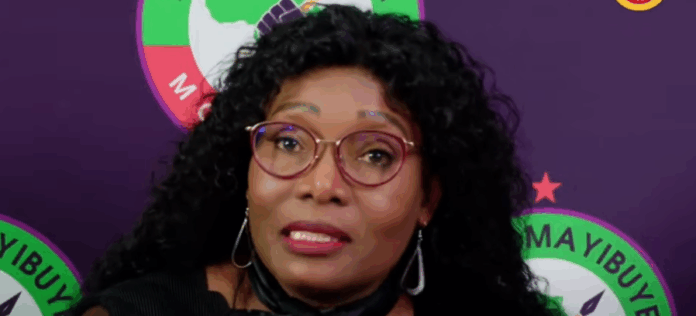A key activist who mobilised women during the consultation process that gave birth to the Afrika Mayibuye Movement has described her new position as a “demotion”.
Nonhlanhla Dlamini, who served as convenor of the women’s commission during the Mayibuye consultation process, had been widely expected to take up the role of president of the women’s chapter.
Instead, when Mayibuye leader and former MK Party secretary-general Floyd Shivambu unveiled the women movement’s leadership structure, Dlamini’s name appeared as deputy president.
Dlamini had been scheduled for an interview with Sunday World in her anticipated capacity as president. But she pulled out at the last minute after the announcement of a new leader, sending only a terse message: “I’m demoted to deputy president now, so I don’t think the interview is still necessary.
“There’s a new president; I’m no longer a president of the Mayibuye Women Movement.”
The “new president” is Musa Dube, the former MKP Women’s League boss in Gauteng, whose appointment Was confirmed on Thursday.
Dlamini’s disappointment reflects the energy and visibility she poured into the consultation phase. She presided over the Women’s Day gathering in Midrand last month, where activists declared that “women are not asking for a seat at the table, they are building the table”.
Her efforts had also drawn praise from Shivambu himself in the Mayibuye Journal. “The convenor of women, comrade Nonhlanhla Dlamini, brought together women from across Gauteng’s townships, suburbs, and rural communities to shape Mayibuye’s vision for gender equality, economic justice and systemic reform,” he wrote.
Those words of recognition help explain why many expected Dlamini to take the top role in the women’s movement. Instead, her relegation to deputy has placed her in a difficult position, where she is forced to accept the demotion as part of the party ‘s democratic centralism.
During this week’s announcement, Shivambu described Dube as an experienced leader with a solid grounding in politics and community development.
“She has played a significant role in different sectors, including advocacy of HIV/Aids, the participation of women in the economy, and development of communities. Her appointment as the president of the Mayibuye Women’s Movement will significantly enhance the life of the Afrika Mayibuye Movement.”
He added that Dube has been given a mandate to establish women’s structures throughout the country.
In her acceptance speech, Dube pledged to prioritise the fight against gender-based violence and femicide. “We all have to hit the ground running. For us, it is obviously to recruit and mobilise,” she said.
“As amakhosikazi (women) of South Africa, it is our responsibility to ensure a sweeping victory in the upcoming local government elections and the 2029 elections, enabling us to seize power and implement our strategic goals as a collective.”
As the party prepares for its national convention aimed at adopting its founding document ahead of the 2026 local government elections, the incident underscores the delicate politics of leadership choices. For Dlamini, once hailed as the face of the women’s chapter, the shift is not merely a reshuffle. In her words, it is a “demotion”.




